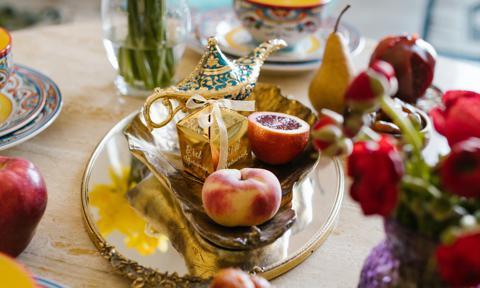
This Is What You Should Never Eat During Ramadan

It’s the time of the year when Muslims all across the world fast for thirty days straight, giving up eating or drinking anything from sunrise to sunset. The holy month of Ramadan is based on the principle of moderation and gratefulness and overindulgence is best to be avoided during this time.
As part of the roza, or fast, Muslims wake up before sunrise to eat sehr and break their fast with a meal, post-sunset, known as iftar. Because the fast requires complete abstinence from food and drinks, including water, it’s very important to know what to eat and what to avoid during the month of Ramadan so that you don’t make yourself sick with problems like dehydration, bloating, or indigestion.
Here’s a quick breakdown of all the things you need to avoid if you’re fasting during Ramadan…

Bowl of cereal
Simple or Refined Carbohydrates
The idea of sehr is to have something that would sustain you for a long time and make you feel energised throughout the day. Food items like sugar, white flour, cereal and pastries can only make you feel full for a few hours and drain your energy for the rest.

Salt
Salty Foods
Since you cannot drink water while fasting, it’s best to steer clear of any food that’s highly salty. The imbalance of sodium levels in your body will make you feel thirsty throughout the day.

Cup of coffee
Caffeinated Drinks
Caffeine is a diuretic, which basically means it will cause the body to lose fluids and other necessary minerals and is, therefore, not ideal while fasting. Avoid drinking coffee, green tea, or any energy drink during this time.

Coca Cola
Carbonated Drinks
While a chilled glass of Coke might sound like a dream when you’ve not had anything to eat or drink throughout the day, it would be best to curb those urges. High on sugar, these fizzy drinks will cause indigestion and bloating if you consume them after fasting for several hours.

Greasy plate of fries
Fried Food
If you ask anyone, the most popular iftar items would be anything deep-fried and greasy. While it’s alright to indulge once in a while, these fried goodies should stay away from your post-fast diet as they can cause acidity and indigestion.
Experts across the board recommend going for a well-balanced meal when it comes to sehri or iftar. Make sure to include fruits, seeds, nuts, protein sources like eggs or chicken, oatmeal, and lentils in your diet for the month and you’re golden.









